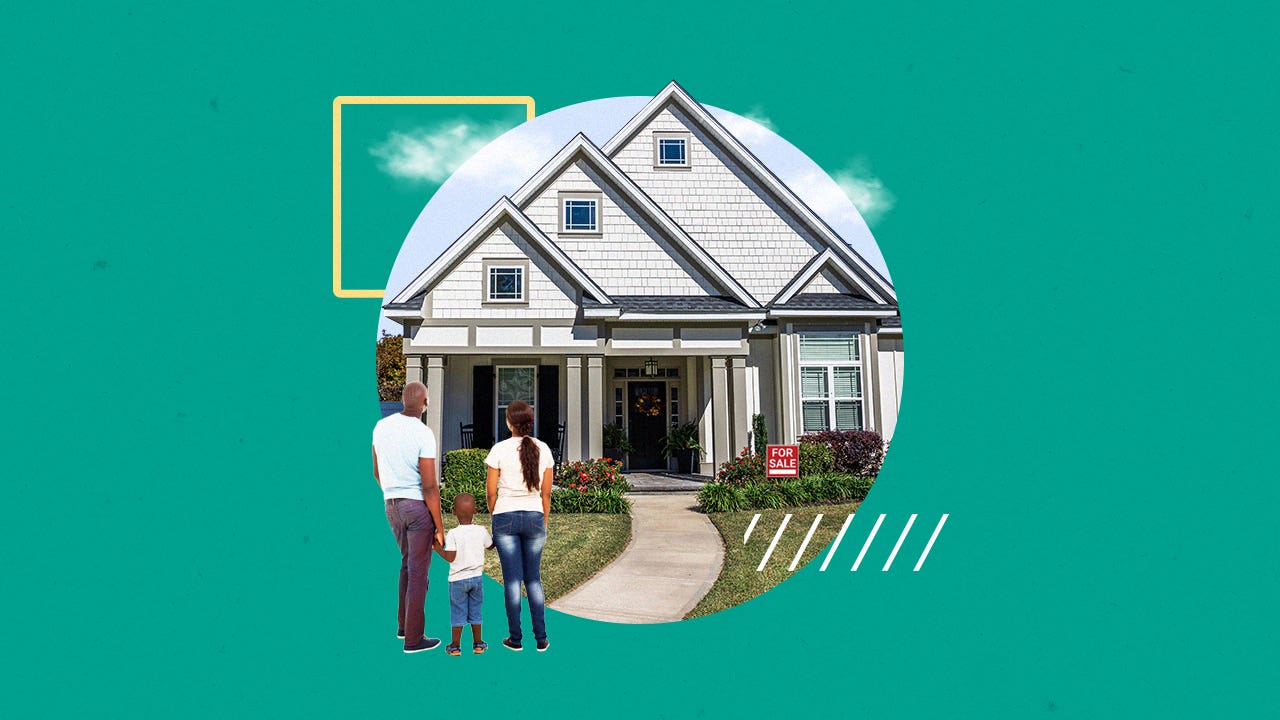How long does it take to sell a house?

During the red-hot housing market of the past few years, it was hardly unusual for a home to sell within a week of being listed. But increased mortgage rates have cooled the market considerably since then, and available homes are spending a longer time waiting for qualified buyers to come along.
So how long does it take to sell a house? According to March 2023 data from Redfin, homes across the country are remaining on the market for about 43 days before going into contract. (In real estate lingo, this metric is called days on market, often abbreviated to DoM.) But the number can vary widely from one market to another, and many other factors are also involved, including type of home, marketing strategy and even time of year it’s listed for sale.
Typical home-sale timeline
While factors specific to your home often play a significant role in how long it ultimately takes to sell, so too do local and national market conditions. For instance, when inventory is limited and there’s a great deal of competition, homes tend to get snatched up more quickly.
This was certainly the case during the height of the pandemic, when the scarcity of available homes and record low mortgage rates created an environment in which homes often sold in just a few days. But today, with the rise in mortgage rates and continued high prices, homes are sitting on the market for longer.
In addition, local market conditions can vary wildly. Some hot markets still heavily favor sellers, which makes for more buyer competition and fewer days on market. Many markets, though, are currently shifting into more of a balance and giving buyers a bit more power, which can result in longer days-on-market time frames. And home condition matters, too: In most markets, a home in great condition is likely to sell more quickly than one that needs updating or major repairs.
The right real estate agent can also make a significant difference. While you don’t necessarily need an agent to sell a house, a skilled agent can shorten the list-to-close timeline. Experienced agents have a thorough understanding of the local market, and they know how to effectively price homes and promote new listings to attract as many buyers as possible.
One important thing to keep in mind: Days on market is a measurement of the length of time from when a home is listed to when it goes into contract. The time afterward, between contract and closing, can add significantly more length to the complete timeline. Your agent can help you gauge the time frame when certain milestones will be met, especially if you’re looking to buy a new house while you’re selling the current one.
How to sell your house faster
If you don’t have any time to spare, there are many ways to speed up the home-selling process. Here are a few to consider:
- An iBuyer, or online “instant” homebuyer, makes quick cash offers on homes — really quick, often within 24 hours. The entire sale can generally be completed within a few weeks. However, many iBuyers charge a steep fee for their service, and they’re known for paying less than market value for homes. In addition, these companies only operate in specific areas, so the option might not be available in your location.
- Similarly, companies that declare “We buy houses!” make all-cash offers for homes. They also make offers quickly, sometimes on the same day that a representative views your home, and can finalize a sale fast as well. These types of homebuyers often purchase homes in any condition, even the most run down homes, so you can sell as-is and not have to worry about making repairs. And while they will speed up your sale, you might not get top dollar from these companies, either.
- Staging your home can make it look more appealing to buyers. Investing the money in this effort allows your home to stand out from the competition in online searches and look its best during open houses, both of which may result in closing a deal sooner. According to a study from the Real Estate Staging Association, staged homes sold about nine days faster than unstaged properties.
- Improving curb appeal is another way to help your home look more attractive to prospective buyers. Even small, inexpensive projects — such as planting new flowers, keeping your lawn nicely mowed and repainting the front door — can go a long way toward enticing buyers.
- In a slow market, seller concessions can also help your home sell more quickly. A concession is a portion of the buyer’s expenses that the seller agrees to pay, thus lowering the buyer’s overall closing costs.
Next steps
Selling a home is a significant step, and one that should be approached with a great deal of thought and research. Keep in mind that selling isn’t all profit — there are significant costs that sellers must pay as well, so make sure your finances can handle the closing costs.
In addition to fully understanding current market conditions, it’s important to have a good understanding of how much your home is worth. A real estate agent who knows your local market well will be able to help you price your listing right and market it effectively, so it doesn’t languish on the market for longer than it should.
FAQs
-
As of March 2023, the median length of time a home is spending on the market across the country is 43 days, according to data from Redfin. This number varies from market to market, though — for example, it’s 57 days in Chicago but only 22 days in Boston.
-
Late spring and early summer are typically the best times to sell a home. It is considered the peak selling season, when real estate activity is at its highest and sellers can net thousands of dollars more for their home.
-
The best time of year to list a house for sale is typically late spring and early summer. However, the data can go even more granular: The best month specifically is May, according to an analysis by ATTOM Data Solutions, and data from both Zillow and Redfin suggests that listing on a Thursday is optimal.
Why we ask for feedback Your feedback helps us improve our content and services. It takes less than a minute to complete.
Your responses are anonymous and will only be used for improving our website.






